Roberto Firmino Barbosa de Oliveira was born on 2 October 1991 in Trapiche da Barra, a poor neighbourhood squeezed between a polluted lake and a poverty-stricken favela. Inside his simple childhood home, he would drift off to the cacophony emanating from the nearby 20,000-capacity Estadio Rei Pele. It’s little wonder football was never far from his mind.
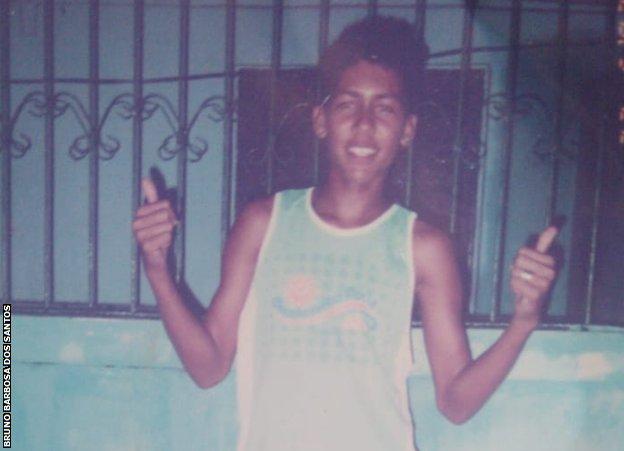
“It has always been violent here and Roberto’s mother was very protective of him,” says Bruno Barbosa dos Santos, a childhood friend of Firmino. “He was football mad, but it was difficult for him to be let out, so he would jump over the wall to come play with us in the street. One time he fell and had to get stitches in his knee. He still has the scar.”
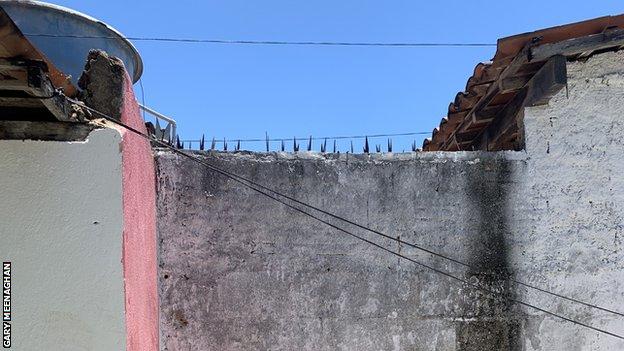
Firmino first attended the Escola Estadual Professor Tarcisio de Jesus aged seven and is remembered by his Religious Studies teacher, Gilvania Dias da Silva, as “a fun and smiley boy who was only ever interested in football”.
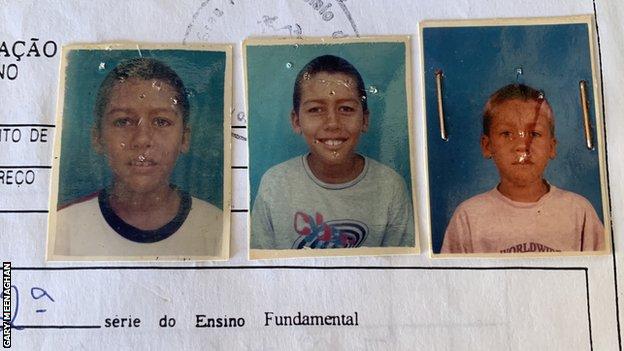
Money was tight, but with the help of Farias and club dentist Marcellus Portella, Firmino travelled Brazil’s north east for two years playing junior championships as a deep-lying defensive midfielder, often in the same team as future Real Sociedad striker Willian Jose. At one point, he embarked on a 120-hour round trip by bus to Sao Paulo for a national tournament; his legs and feet swelling, but his enthusiasm never waning. “I have trained many talented boys,” says Farias, “but none who showed the same dedication as Roberto.”
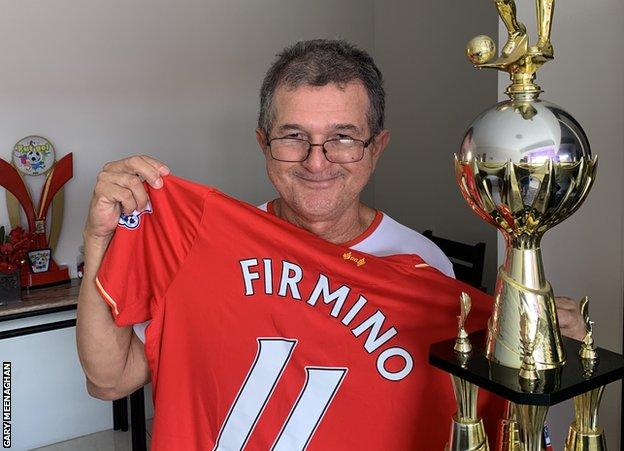
Yet while his voice was quiet, the noise surrounding him was growing. In 2009, before he had even played for the Figueirense first team, he was invited for a trial at Marseille. But his journey to the south of France involved a stopover in Spain and things quickly went awry. Despite the fact Firmino was only changing flights, immigration at Madrid-Barajas Airport accused him of trying to enter the country without prerequisite paperwork and he was deported in tears.
Arriving back in Brazil, Firmino was met by Maria who lifted the 17-year-old’s spirits by reminding him Cafu had experienced similar disappointments early in his career before captaining Brazil to World Cup glory. A month later, he made the trip to Marseille again – this time on a direct flight – but ultimately the French club decided against paying his 1m euro (£860,000) release clause. “Given what he’s achieved since, it has to go down as an error on our part,” Jean-Philippe Durand, Marseille’s former personnel chief, admitted in 2018.
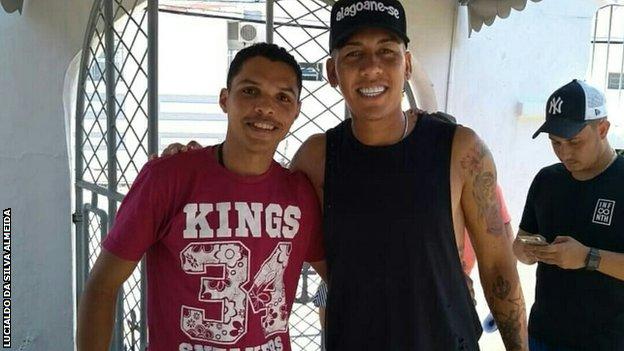
Swapping the sunshine of Santa Catarina for the snow of south-west Germany was a challenge, but as his coaches always said, Firmino’s dedication sets him apart. After a couple of years acclimatising, he was voted the Bundesliga’s Breakthrough Player of the Season. By the time Liverpool beat off competition from Manchester United and Manchester City to sign him for £29m in July 2015, he was a full Brazil international. “His departure left us with one eye laughing and the other shedding a tear,” Hoffenheim’s director of football Alexander Rosen told World Soccer in 2018.

Since then, Firmino’s career trajectory has only steepened. In the past 12 months, he has won the Champions League, the Copa America, and is set to lift the Premier League trophy this season. In August, he became the first Brazilian to score 50 goals in the English top flight and in December scored the only goal as Liverpool beat South American champions Flamengo in the final of the Club World Cup.
Nevertheless there remains a feeling Firmino is not fully appreciated in his homeland. Perhaps, say his friends and former coaches, it is because he never played for one of the traditional powerhouses in Sao Paulo or Rio de Janeiro. Even at the Museum of Sports at Estadio Rei Pele, among the bronze busts of Alagoan heroes Mario Zagallo and Dida, there is nothing to commemorate the superstar who was, literally, born just down the road.
Predictably, such sentiment does not extend to the streets of Maceio. Here, be it among the giant palms and high-rise hotels or the pollution and plastic waste, Firmino remains their humble, unheralded hero. Sergio Araujo, a mobile phone technician relaxing near Ponta Verde beach, puts it best.








